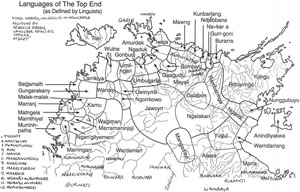Living Archive of Aboriginal Languages
The Living Archive is a digital archive of endangered literature in
Indigenous languages of the Northern Territory. For more information
visit www.cdu.edu.au/laal
Living Archive of Aboriginal Languages Launch and Public Lecture
5:00pm – 6:30pm, Monday 7 April
Northern Territory Library, Parliament House Darwin
The Living Archive of Aboriginal Languages archive will be launched by the Dr Tom Calma, recently inaugurated Chancellor of the University of Canberra and will accompany a talk by Professor Michael Christie of the Northern Institute, Charles Darwin University entitled ‘Aboriginal languages, literatures and technologies in the Northern Territory since the 1970s’.
The talk is a reflection on Professor Christie’s over 40 years involvement with bilingual education, linguistics and literature production in the NT, and the ways in which Aboriginal philosophies and pedagogies have influenced the production and use of literature over the years.
The archive contains books in over 25 Indigenous languages from 20 different communities, and includes traditional stories, language instruction, histories, songs, experience stories, ethno-scientific texts and others.


